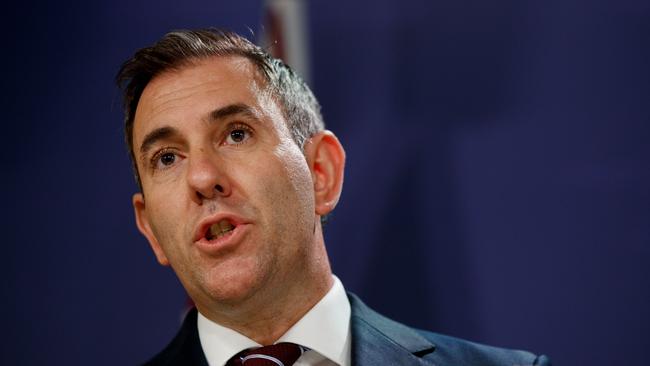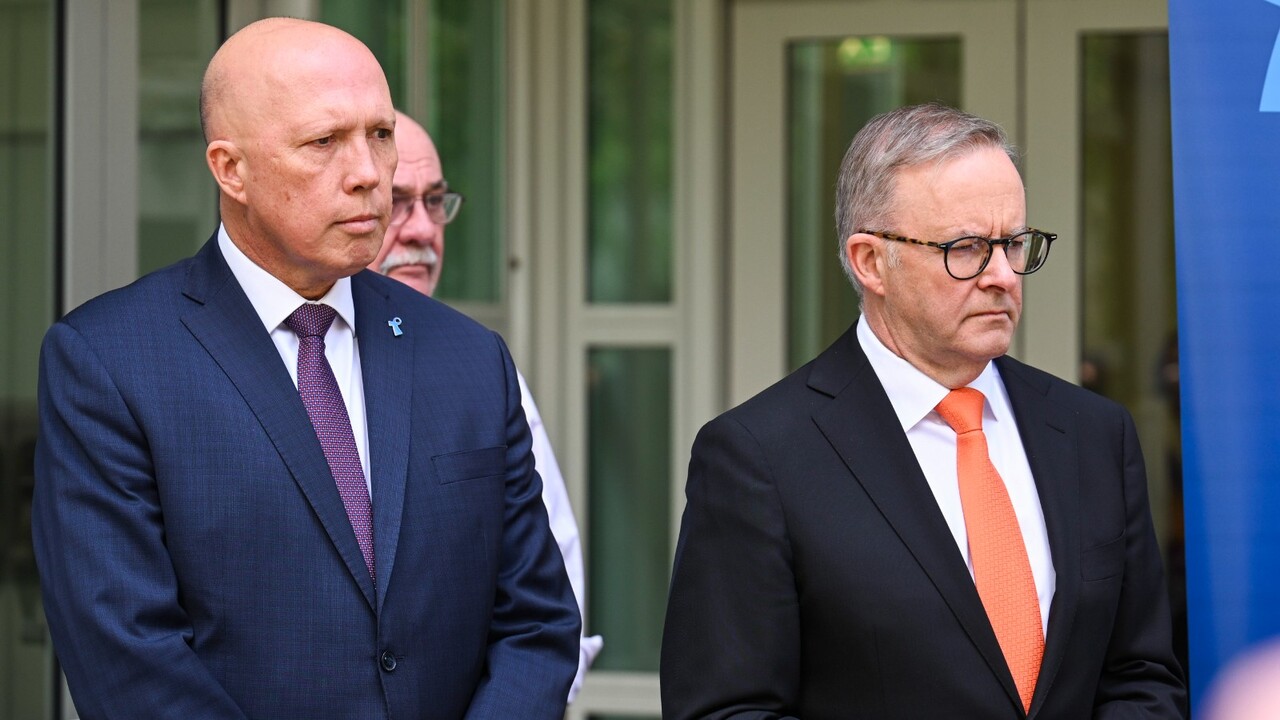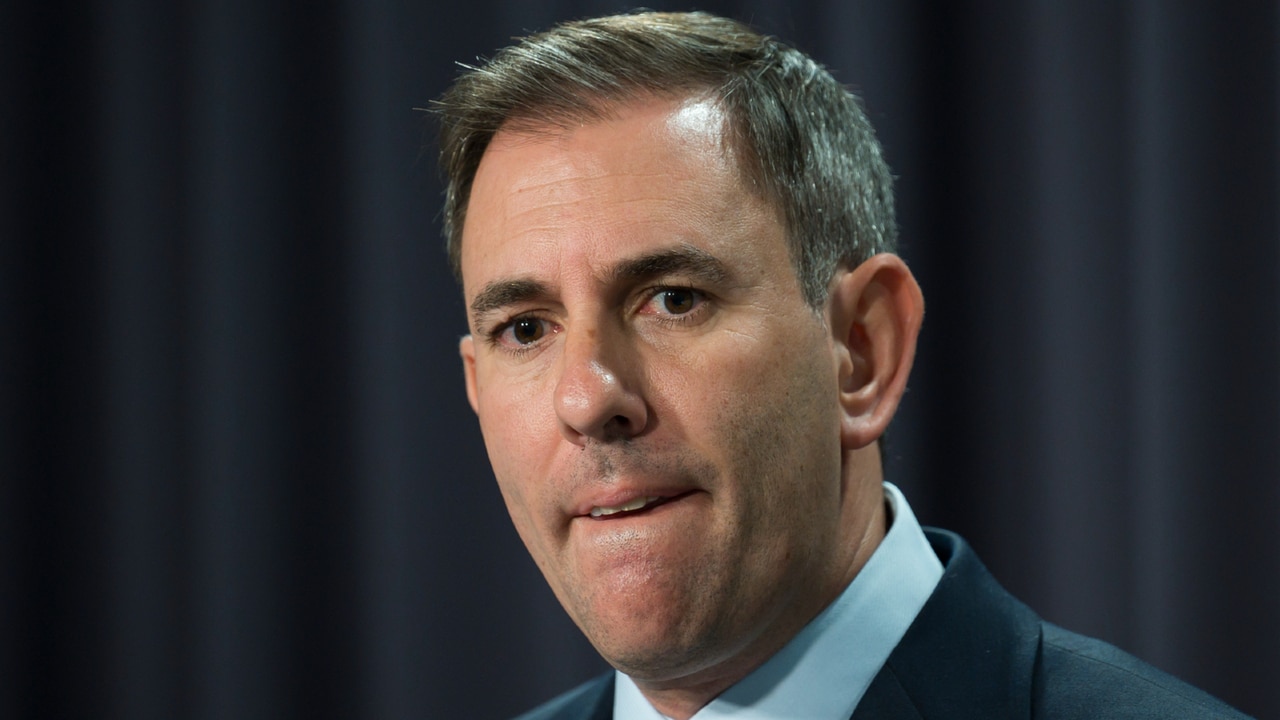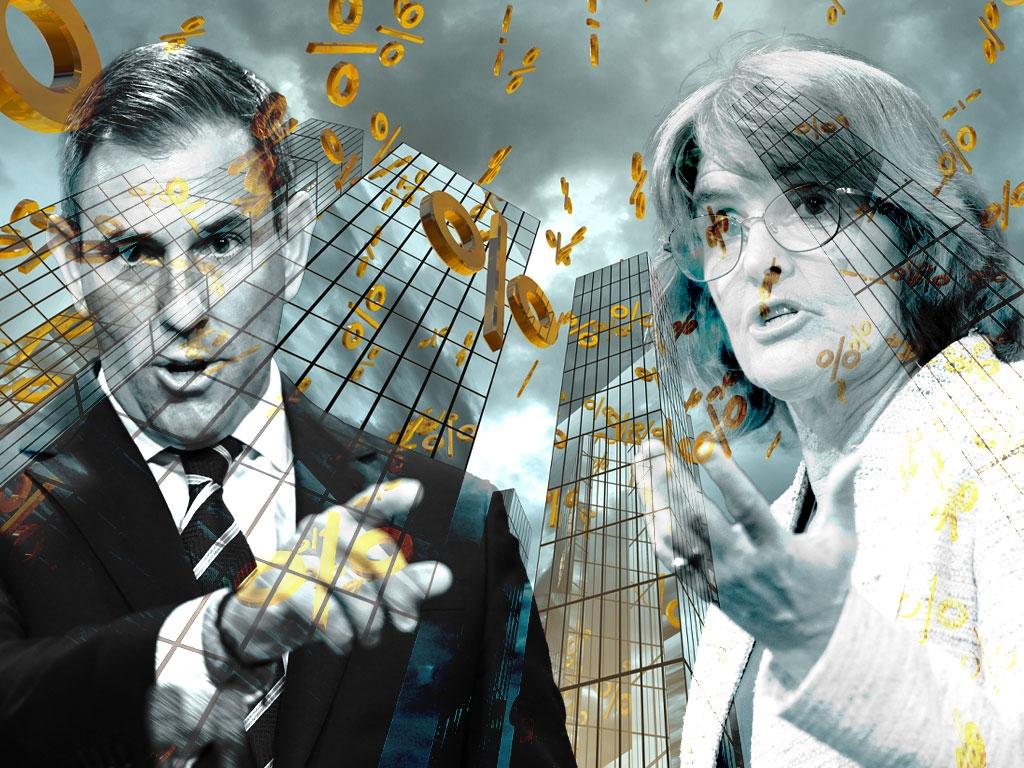No cash splash in MYEFO, says Jim Chalmers
Some experts say additional government expenditure would not be sustainable and threatens to keep interest rates higher for longer.

The impending mid-year budget update will not be awash with fresh spending measures, Jim Chalmers says, as some economists warn that more government expenditure is unsustainable and threatens to keep interest rates higher for longer.
Speaking after the release of tepid national account figures on Wednesday, the Treasurer said the government was banking on business to help pull Australia out of its current economic malaise.
“Public spending is playing a helpful role here in keeping the place ticking over, but the best kind of growth in the medium term in normal times is private sector-led,” Dr Chalmers told ABC radio on Thursday.
“Cost-of-living help’s important, it’s playing a role, government investment’s helpful, playing a role. But ideally, when we get the place growing in a more normal way, in a more sustainable way, the private sector’s playing a bigger role.”
Geraldine Slattery, president of resources giant BHP’s Australian division, welcomed Dr Chalmers’s comments and pointed to the need for policy settings to attract capital and investment to Australia.
“I’m completely in agreement with the Treasurer, I wish he’d said this a year ago because this is exactly the message that’s been coming from ourselves but also more broadly in business,” Ms Slattery told The Australian.
“Private sector investment and growth is what will underpin the economy more broadly.”
Wesfarmers chief Rob Scott similarly pushed for a business-led economic recovery, saying the GDP figures had come as “no surprise”.
“Going into the election next year, cost-of-living challenges and the housing crisis are going to be two critical issues,” he said.
“The key to solve those issues is to unlock the capability and investment of the private sector.”
The Australian economy expanded by a meagre 0.3 per cent in the September quarter, the Australian Bureau of Statistics said on Wednesday, falling short of economists’ expectations of a 0.5 per cent increase.

The result brought annual GDP growth to 0.8 per cent, down from 1 per cent in the year to June, the weakest non-pandemic reading since the 1990s recession.
Propping up growth was record levels of government spending, which climbed to 28 per cent of GDP and is forecast by economists to move higher still.
Ahead of the mid-year economic and fiscal outlook slated to be released during the third week of December, Dr Chalmers played down the prospect of extra spending measures, claiming the update would not be “some kind of mini-budget”.
“There will be some new measures in there, but it won’t be a kind of … big spending new opportunity to announce a whole bunch of new stuff,” he said.
“One of the features of the mid-year budget update, one of the reasons why in a couple of the years the budget situation becomes a bit more difficult is because we have to account for automatic increases in spending in areas like veterans’ affairs and Medicare and early childhood education.”
With bond traders now pricing a rate cut at the Reserve Bank’s April meeting, ahead of the cut-off for a federal election which must be held on or before May 17, Dr Chalmers also signalled he still intended to hand down a pre-poll budget in March.

But as Labor mulls an extension of cost-of-living measures, including its $300 household energy bill rebate that cost the federal budget $3.5bn this financial year, economists warned against a pre-election cash splash.
“We really do need to maintain budgetary discipline,” Challenger chief economist and former RBA official Jonathan Kearns said. “The more stimulus the government adds, the longer it will take the RBA to cut interest rates. There might be some special cases for extra support for different households that are especially vulnerable, but by and large it’s just a matter of waiting for inflation to come down.”
Deloitte Access Economics partner Stephen Smith said the levels of government stimulus couldn’t “go on forever”.
“With the economy stuck and an election upcoming, now is the time to float some big ideas,” Mr Smith said. “Proper tax reform, done correctly, can be good for the economy, good for the prosperity of Australians, good for the budget.”
Peter Dutton shared concerns with public expenditure, but stopped short of rebuffing an extension of energy bill support.
Additional reporting: Cameron England, Eric Johnston








To join the conversation, please log in. Don't have an account? Register
Join the conversation, you are commenting as Logout